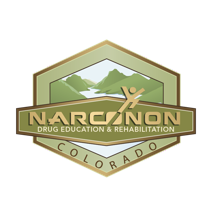Why Waiting to Hit “Rock Bottom” Might Be Too Late

A lot of people hold off on asking their loved ones to get help because they believe the myth that someone has to hit “rock bottom” in order to be willing to get help. While for some people this may be true, it is not necessarily true for everyone. Unfortunately for many addicts, rock bottom means death, and at that point, it is too late to get help. The National Institute on Drug Abuse (NIDA) also advises that the earlier a person is able to get treatment for addiction the better and that having to hit rock bottom in order to benefit from treatment is a myth.
If you are someone who is watching someone you love struggle with addiction, it is important to know that it is never too early to step in and ask that person to get help. In fact, the earlier an addiction can be handled the better. A phrase that can often be heard uttered by someone who had been caught up in active addiction for a long period of time is “I wish I had gotten sober sooner.”
The longer a person waits to get sober the more their addiction will begin to have a negative impact on their lives and the greater the damage that will be done. This is in no way meant to discourage someone who has been caught up in substance abuse for a long time but is rather intended to encourage anyone dealing with addiction to realize that the best time to handle an addiction is now.
With the ever-increasing rise in deaths from drug-related overdoses due to increased potency in drugs, it is now more important than ever to up the awareness on seeking quality treatment. There is a common misconception amongst young adults that there will be time later down the road to get sober, however for far too many people that day may never come.
Another important thing to keep in mind is that everyone’s “rock bottom” looks different. Someone does not necessarily have to be homeless to have reached their lowest point. Some common symptoms of rock bottom are:
- Ruined relationships: If someone is caught up in addiction long enough, it is inevitable that sooner or later their relationships will become strained. The longer an addiction progresses, the more relationships will be destroyed due to the nature of addiction.
- Extreme debt: It takes a lot of money to feed an addiction. Addiction can be so powerful that it often moves up to the top of the priority list. Other areas of a person’s life begin to suffer and bills may go unpaid.
- Loss of work: It is hard to keep a job when you are caught in the teeter-totter of being high or drunk and going through withdrawal. For many people, the loss of a job is one of the many casualties of their addiction.
- Loss of a home: When the majority of a person’s money goes towards buying drugs or alcohol it can become easy to not have enough money left over to pay rent or a mortgage.
- Criminal behavior: When an addict loses their job, they will often turn to other means for getting money to purchase drugs. Often times these means will be illicit ways to get “fast cash.”
- Incarceration: The longer someone is caught up in the drug game or abuses alcohol, the more likely they are to get arrested. The reason for arrest can range from simply possessing illicit drugs to stealing to get money for drugs or driving under the influence.
- Death: Unfortunately this has become a common “rock bottom” for many addicts. This sad reality can be seen in the record-breaking number of drug-overdose-related deaths that are occurring in the United States.
Addiction does not discriminate based on age, race, religion, etc., and it can destroy anyone. There have been too many lives lost to drug and alcohol addiction. If someone you love is an addict, don’t wait until it is too late to try and get them help.
Sources:


